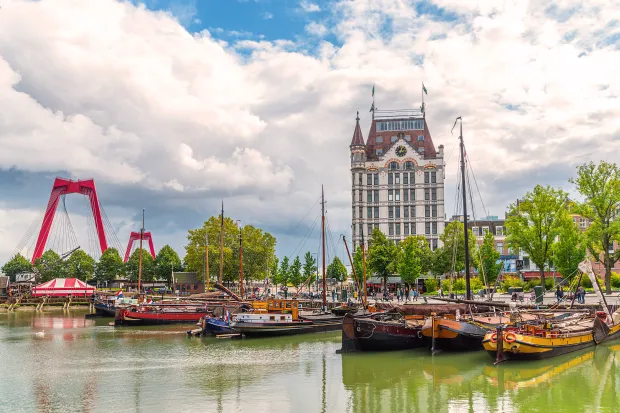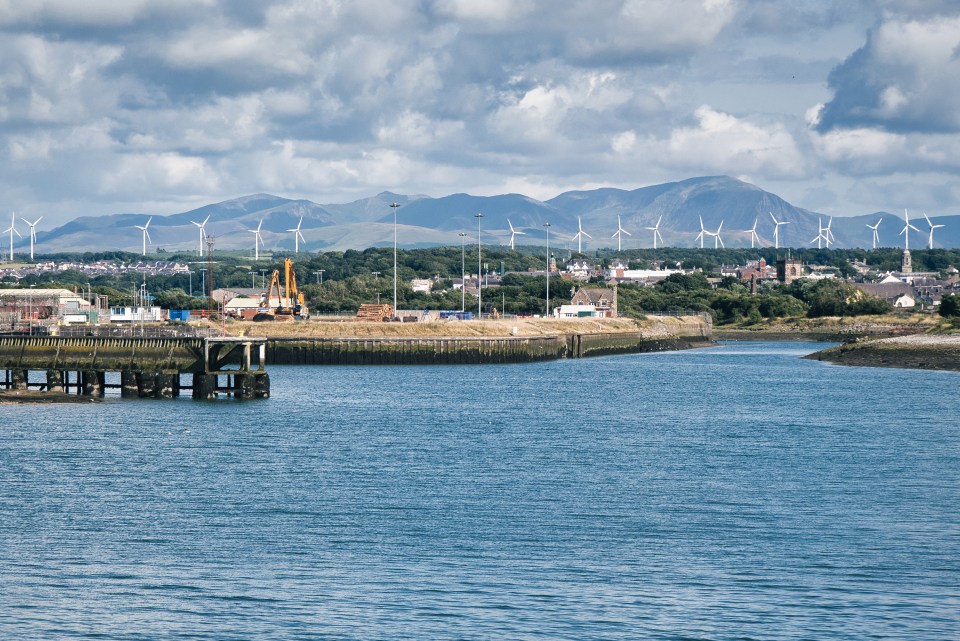George Orwell died in 1950, but he’s in the newspapers nearly every day. In the past few years alone, the British press has quoted him on whether Britain is an unserious country, whether book blurbs are degenerate and why a good British pub should be revolting. Writers ask what he would have made of the end of British coal, and repeat his counsel on how to make the perfect cup of tea. They cite him on why English people love queueing, the importance of having hobbies, why “cancel culture” is a poor substitute for free speech. They ask what he can teach us about Israel and Palestine and when Britain will tire of its culture wars. One might just as well ask when Britain will tire of the obligatory Orwell reference.
How is it that Orwell has become the single answer to so many questions, in so many different subjects, for so many people? His name conjures an amorphous idea of fair play and “common sense”; his spare prose supposedly brings cool nonpartisanship to a world of impassioned blusterers. In keeping your sentences clean, the theory goes, you practise intellectual hygiene (“good prose is like a windowpane” and all that). A single word, “Orwellian”, evokes the great man’s foresight about the dangers of an overweening nanny state, a censorious far-left or whatever else may be getting your goat that day.
Orwell now stands for a set of broad assumptions: that free speech is good and purple prose is bad, for instance; for the importance of careful proportionality; for the idea that, in a wild world of populist extremism, the sensible counterweight might actually be not to have an opinion at all. Or, rather, to have an unopened mystery box of opinions labelled “George Orwell”. Orwell, the thinker, elaborated his views with rigour and specificity. Orwell, the figure quoted by other writers, has become a substitute for doing just that.
For years, journalists, critics and columnists have vied for his posthumous approval, in the quest to become that most enviable of figures — the truly impartial observer, who stands apart from the fray. Above all, his fans admire the idea that it might be possible to take a courageous stance precisely by refusing to take a side at all.
That most of Orwell’s acolytes are English, as was he, seems not to undermine his neutrality. The theory is simple: first you master spare prose, then you master cogent and neutral thought, and finally you impart your cogent, neutral thoughts to the wider public.
The seeds for this rather mad idea — to stay on the right side of history in 2024, all you have to do is write like one specific dead guy — can be found in “Politics and the English Language”, an essay published in the immediate aftermath of the second world war. Here, Orwell posits that swindlers and fools swaddle up their opinions in unnecessary verbiage, whereas, in forcing ourselves to write plainly, we think better. “If you simplify your English, you are freed from the worst follies of orthodoxy,” he writes, “and when you make a stupid remark its stupidity will be obvious, even to yourself.” The essay is nostalgic for plain Saxon English, fine British values, simpler days.
The way we use English has evolved since then. Orwell’s hope that spartan language could unmask stupidity looks decidedly naive in today’s political landscape. Our modern-day swindlers and fools speak much more clearly than the Latin-quoting bloviators of Orwell’s time, yet their lunacy is not always exposed by simple phrasing. “Get Brexit done” was a) plain as can be, and b) persuasive enough to many people that they voted for it in droves. Donald Trump may be in a fraught situationship with grammar, but his English isn’t at all flowery. As the literary critic Houman Barekat wrote in a 2013 re-evaluation of “Politics and the English Language”, “If the verbal currency of daily exchange is superficially more straightforward than it was in the 1930s and 40s, the art of bullshitting is nonetheless alive and well.”
The shared Englishness of Orwell and his admirers comes to seem less coincidental the more he draws a link between Saxon words and a sort of vitality, versus Latinate ones and pretension. The myth of an uncorrupted English is appealing. It enables the suggestion that some international ill wind carries over bad ideas, while Englishness itself remains sound. If we’d only stick to the West Germanic roots of our language, surely it would keep us honest. (Or rather, “truthful”, as “honest” is another of those pesky Latinate interlopers.)
This “pure” English is a myth, of course. Neither the Saxon nor the Norman half of English is native to the island of Britain. Neither language family is intrinsically more politically sensible; Germans have, in fact, managed to be fascist in German. What’s more, one cannot be history’s most prolific global coloniser without accepting changes into the language. The words we use to discuss politics show these ties: the English took “pundit” from Hindi and “slogan” from Irish. They took a lot more too, but the pay-off, linguistically, is that English no longer belongs to the English. Its former colonies now have far more English-speakers, and consequently the majority vote on how the language will change.
Still, English Orwell acolytes take a certain comfort in the binary of “homegrown English/sensible opinions” versus “foreign English/pretentious sophistry”. These fans don’t dwell explicitly on this point; today’s English journalism gives little cause to complain about polyglot showboating. But in uncritically citing stylistic advice that discourages internationalising the language, the Orwell crowd still implicitly buttress their own sense of superiority. They say, without having to actually say it: “Stick with me here in the sane United Kingdom, not the wild world beyond our prudent shores.”
In a 1980 essay for the New Statesman magazine, “Tourism Among the Dogs”, Edward Said considered Orwell’s influence on a generation of journalists. The ideal of a professedly stakeless bystanderism, Said argued, could serve to mendaciously neutralise the analyst, veiling the power that “put [them] there in the first place”. He described such a figure, witheringly, as the “obviously concerned reporter who is beyond Left piety or right-wing cant” looking on at the “Asiatic and African mobs rampaging”.
These writers identify with Orwell in part because he invites them to. He assumes that his reader is already in the fold, and, from this position, begins to scold. You are in the straight-talking Saxon camp, he tells them, but from within this camp you need to take a hard look at yourself. The clarity of your language will test the clarity of your moral force.
Was Orwell actually all that impartial? Certainly his left-wing anti-totalitarianism aligns with prevalent views today. But it’s self-flattery on our part to imagine that he arrived at this position through an objectivity forced by clear language.
For contrast, consider the work of G K Chesterton. I agree with the Catholic apologist on fairly little, and yet the man could write; his concision and wit have much in common with Orwell’s. In his 1909 book, Orthodoxy, Chesterton makes a punchy claim: “I am still as much concerned as ever about the Battle of Armageddon; but I am not so much concerned about the General Election.” Stylistically, Orwell could easily have written this sentence; ideologically, he would rather have died than write it. Later in the book, Chesterton rails against “long comfortable words that save modern people the toil of reasoning”, which could have come straight from Orwell — yet the chapter proceeds to defend a belief in miracles. Orwell was an avowed atheist. Two English men use the aesthetics of impartiality to take opposite stances. They can’t both be objectively right.
When did the Orwell mania start? In 1983 Harper’s magazine ran a cover story titled “If Orwell Were Alive Today”, which argued that the great man would surely have shrugged off his leftist togs and become a neoconservative, given enough time. Ten years later, British prime minister John Major commemorated Orwell’s idealised England of “old maids bicycling to holy communion through the morning mist” in a speech to the Conservative Group for Europe. But it was not until 2002, when Christopher Hitchens published a book about his hero, that the unfettered appreciation of Orwell’s thinking and its expression was raised to an art form.
In Why Orwell Matters, Hitchens painted a picture of a man who was almost always on the right side of history. “It matters not what you think, but how you think,” goes his argument. For Hitchens, Orwell’s independent spirit and moral clarity mark him for praise more than any particular view he held. This is a difficult negative to prove. Hitchens must show not only that Orwell thought particular things, but that he wasn’t put up to it by others.
In his quest to promote Orwell as a pioneering individualist, Hitchens manages to credit him with an outlandish range of achievements. “It might not be too much to say that the clarity and courage of Orwell’s prose . . . also played a part in making English a non-imperial lingua franca,” he claims. “It would not be too much to say that he pioneered ‘cultural studies’ without giving the subject a name.”
There are indeed some international contexts in which English is seen as the most neutral language (though it is rather an astonishing hop, skip and jump to suggest that this makes it non-imperial). People did indeed engage in what we might consider cultural studies before the term gained currency in the 1960s. Possibly, Orwell played some small part in both developments. But Hitchens is hedging for a reason. It might not be too much to say these things. It also might not be too much to say that Orwell invented the bra and engineered the fall of the Berlin Wall.
Let’s recap what Orwell actually wrote. Between 1933 and 1949 he produced six novels and three works of non-fiction, as well as pamphlets, poetry and journalism. The forgettable first four novels would not still be in print if it weren’t for the famous final two: Animal Farm (1945) and Nineteen Eighty-Four (1949). The non-fiction books are Down and Out in Paris and London (1933), a memoir of middle-class Orwell’s time living in poverty in both cities; The Road to Wigan Pier (1937), whose first half reports on the living conditions in working-class Lancashire and Yorkshire and whose controversial second half examines resistance to socialism among the British middle-class (it is here that Orwell comes out with his much-quoted rant against sandal-wearers, vegetarians and nudists); and Homage to Catalonia (1938), an account of the Spanish civil war.
The essays and journalism most famously argued for democratic socialism and against dictatorship, but they covered an eclectic range of other topics: the ideological underpinnings of boys’ weekly magazines, writing, colonialism in Myanmar, Tolstoy’s reading of Shakespeare, what it means to be English. In “The Lion and the Unicorn: Socialism and the English Genius”, Orwell describes a nostalgic England of “solid breakfasts and gloomy Sundays, smoky towns and winding roads, green fields and red pillar-boxes”. The measure of irony with which he relates all this seems lost on his groupies, as does his rubbishing of the delusion that the English are especially practical, “as they are so fond of claiming for themselves”.
FT Edit
This article was featured in FT Edit, a daily selection of eight stories, handpicked by editors to inform, inspire and delight. Explore FT Edit here ➼
For all its lapses into sentimentality, the essay is not so naively jingoistic as it is often portrayed. Orwell maintains that England is violating its own principles so long as “the refugees who have sought our shores are penned up in concentration camps, and company directors work out subtle schemes to dodge their Excess Profits Tax”. A reader from a former colony might retort that these are exactly the values they associate with England, but Orwell’s contention is that views of the sort now championed by prominent nationalists betray England’s very nature. Still, even despite the essay’s actual excoriation of English conservatism, the idea people get from selected quotes has contributed to Orwell’s resurgence in an era of neopatriotism.
In an article in The Telegraph this year on Ireland’s “Brexit hypocrisy”, the former Brexit secretary David Frost drew on Orwell’s, “Notes on Nationalism”, citing his comment that, for nationalists, “a known fact may be so unbearable that it is habitually pushed aside . . . or on the other hand it may enter into every calculation and yet never be admitted as a fact”. He then went on to engage in precisely the sort of fair-play positioning that Edward Said outlined.
Frost, the neutral Orwell buff, expressed exasperation that the tricksy Irish, engaged in such “doublethink”, wouldn’t come to some reasonable solution over an immigration dispute. When he wasn’t congratulating himself on his own even-handed restraint, he referred to the largest Irish democratic socialist party as “the Sinn Fein monster” (“Féin” was, of course, printed without its accent, rendering it nonsense in Irish). The British, he wrote, were expected to “put up with” this monster in Belfast, as if voters in Northern Ireland were not themselves citizens participating in a thing called democracy. Frost’s reasoning was sloppy, but quoting Orwell enabled him in that sloppiness, shoring up the nexus between Englishness, rational thinking and truth.
There are two kinds of proud Englishmen (and it’s nearly always men) who like to brandish Orwell. Both have in common a desire to claim the judicious middle ground and feel with confidence that Orwell is one of their own. But they each want to deploy Orwell in defence of different world views. On one hand are the sentimental patriots like Frost, who use him to shore up their nationalism. On the other are liberals like Hitchens, who use him to reclaim England from the first lot. For the latter group, “true Englishness” is something different, a sensible, cosmopolitan globalism. Because Orwell wrote prolifically over decades on many topics — sometimes changing his mind, as humans are wont to do — all either side really has to do to claim him is catch him in a particular mood.
Consider a 2022 column in The Guardian about the Conservative government’s dangerous posturing on Ukraine, which quoted Orwell on the British “innate distaste” for dramatic flag-waving statements. Ah, the piece continued, but things have changed. Now the crazy people run the show. “If a single Russian toecap steps into Nato territory, there will be war with Nato,” it quoted the former Tory minister Sajid Javid as saying. By contrast, the writer lamented, the old-fashioned English ways of “caution and level-headedness”, of “nuance and calm” and (of course) of “liberal values” were dying out. Such hand-wringing raises a question: what exactly would we rather politicians were saying about Ukraine? The answer is unforthcoming, but whatever Orwell would have said, it seems, would be fine. His spectral presence becomes a substitute for bringing a thought to its conclusion. It is enough to decry the extremity of others, to dismiss it by juxtaposition, framing other voices as hysterical. Not taking a stance becomes a virtue.
This sort of last-sane-man commentator is so common now as to have been parodied by an X account. “Simon Hedges”, aka @Orwell_Fan, embodies the Orwell-quoter: a middle-of-the-road disdainer of strong opinions, a stalwart in a polarised society. The parody was so successful that in 2019, Hedges was mistakenly nominated for the “Civility in Politics Awards”, a prize set up by members of the House of Lords and campaigners seeking to fight a “crisis of trust and crisis of civility”.
When news of the error blew up on social media, the CPA moved Hedges into a hastily invented category of “best parody account” with the comment “fair play Simon”.
In an interview, the creator of the account said he was parodying political commentators who provide us with no concrete analyses, no clear politics, just rhetoric — a view of the world where “the smart sassy people turn up and make everything OK”. This, in a kernel, is what the Orwell fans want: for their hero to step in and put things right.
Such commentators are not wrong that the world grows ever more difficult and dangerous. But to find a way through the chaos, you need to ask questions that you can’t answer without compromising your neutrality. Why exactly is social democracy a better way? And how should it work in today’s wild world? Calmly telling fascists they’re being rather fascist, when really they should be liberals, is not the devastating rhetorical blow that Simon Hedges thinks it is.
I will admit, under duress, to being a writer. Suffering as I do from this crucial personality flaw, I can sympathise with the hero-worship when I read Orwell’s essay, “Why I Write”. In it, the author is endearingly frank about the main motives for writing, which he sets out as: (i) sheer egoism (“It is humbug to pretend this is not a motive, and a strong one”), (ii) aesthetic enthusiasm (“Above the level of a railway guide, no book is quite free from aesthetic considerations”), (iii) historical impulse (“Desire to see things as they are, to find out true facts and store them up for the use of posterity”) and (iv) political purpose (“Desire to push the world in a certain direction, to alter other people’s idea of the kind of society that they should strive after”). To the latter, Orwell adds: “the more one is conscious of one’s political bias, the more chance one has of acting politically without sacrificing one’s aesthetic and intellectual integrity.”
If we each have an Orwell we relate to, this is mine — the leftwing aesthete who can’t quite reconcile a desire to be useful with a love of form for form’s sake. “So long as I remain alive and well,” he writes, “I shall continue to feel strongly about prose style, to love the surface of the earth, and to take pleasure in solid objects and scraps of useless information. It is no use trying to suppress that side of myself. The job is to reconcile my ingrained likes and dislikes with the essentially public, non-individual activities that this age forces on all of us.” Beautiful. Here, Orwell’s charisma comes from his self-doubt, his wry acceptance of his own limitations, his determination to pick a side, and take a stance, nonetheless.
It is this Orwell that is lost to us thanks to hagiographies like the one Hitchens wrote. He’s the worst sort of wingman — one who puts you off the guy who could have chatted you up just fine by himself. In his fussy, unfocused book, Hitchens spends much of his time quoting and rebutting scattergun academic criticisms of Orwell, accusing his foes of “first-year [howlers]”. At such moments, one feels Hitchens’ pulsing desire to be considered Orwell’s heir, to have it written that Hitchens, too, matters. A Nation article posthumously obliged him in 2021, though the use of his full name in the headline, “Why Christopher Hitchens Still Matters”, suggests he remains a crumb short of Orwell’s stature.
Orwell “would appear never to have diluted his opinions in the hope of seeing his byline disseminated to the paying customers”, Hitchens asserts. And later: “various authors . . . make the common mistake of blaming [Orwell] for his supposed ‘effect’”. Yet Hitchens’ veneration of Orwell has helped reduce the great writer to a rent-a-quote. Once we no longer admire Orwell for what he believed but for the way he believed it, he becomes a cipher, one of his own “dead metaphors”, and fair play for anyone to use.
I don’t want to lay all the blame at Hitchens’ feet; it might have happened anyway. Writers who want to position themselves as voices of unquestionable reason without saying anything too exact or refutable were always going to find some vehicle for their vanities.
Naoise Dolan is an Irish novelist
Follow @FTMag to find out about our latest stories first and subscribe to our podcast Life and Art wherever you listen

































































































































































You must be logged in to post a comment Login